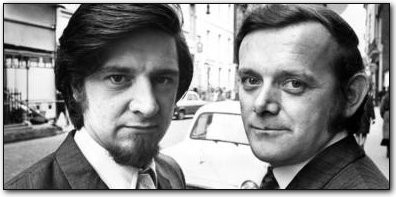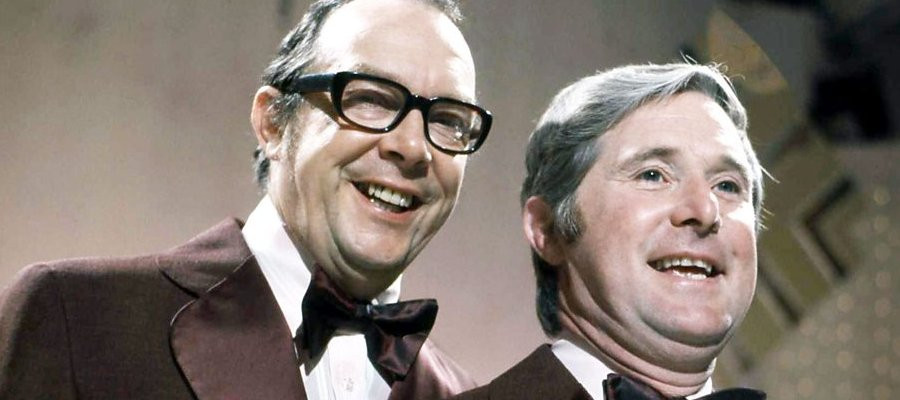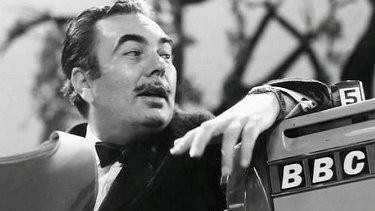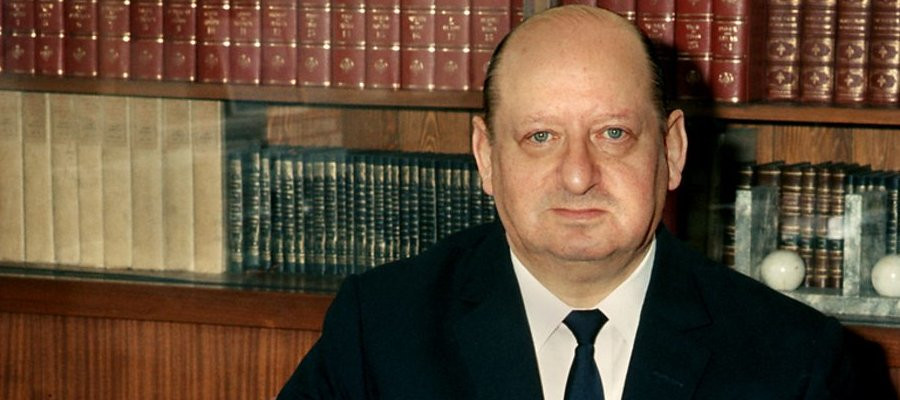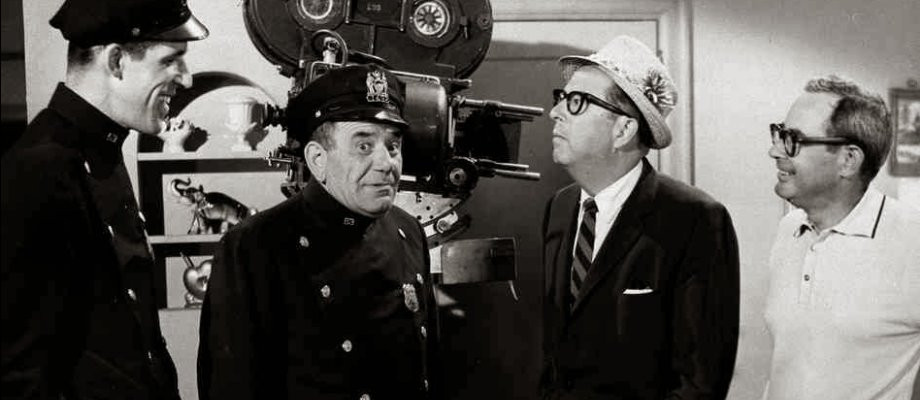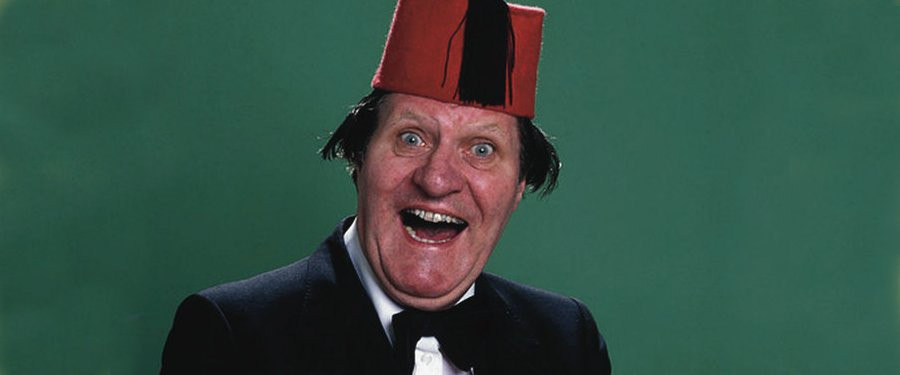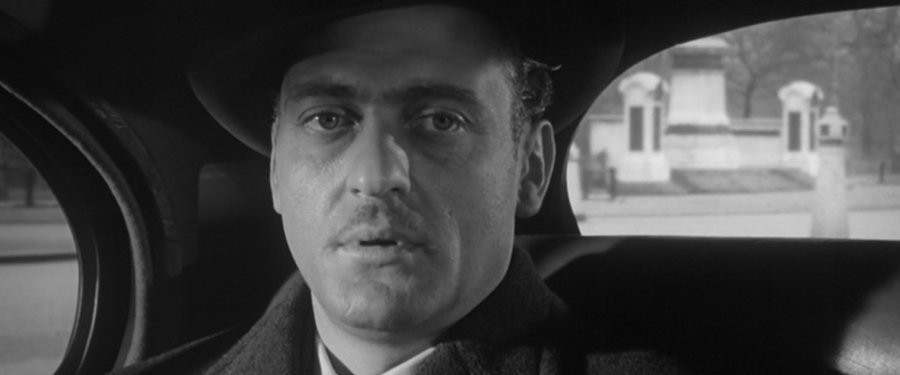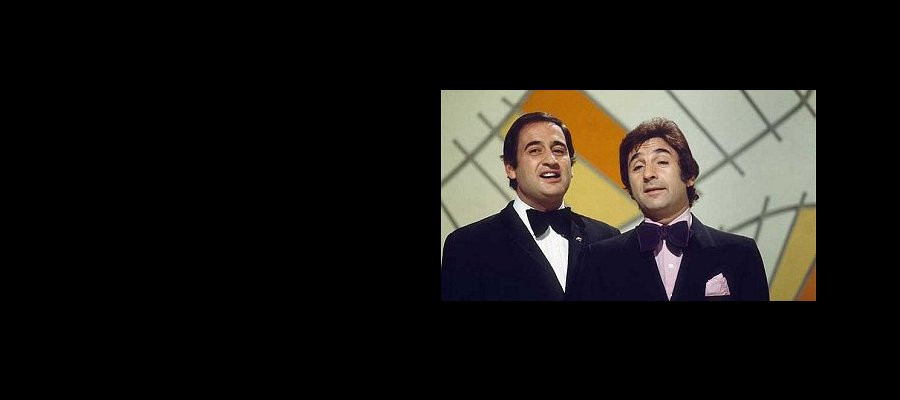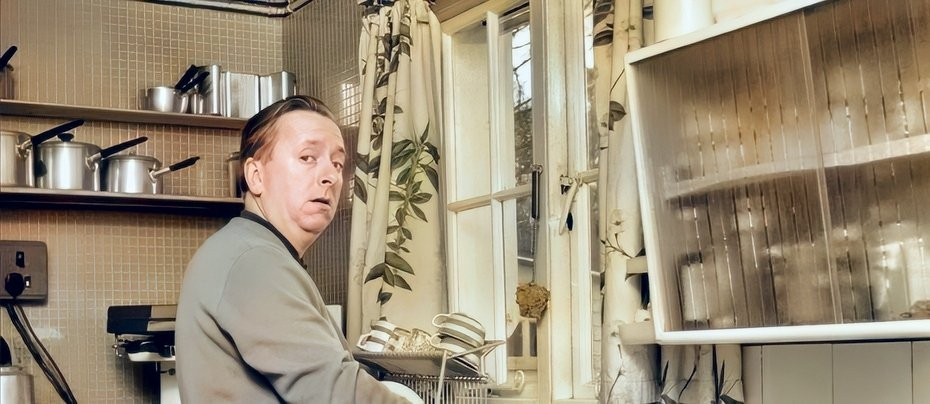
Hugh Lloyd
He once described himself as “not so much an actor, but more of a performing dog with a wagging tail, anxious to please.” But Hugh Lloyd, perhaps more aptly described by Ray Galton as “the perfect feed”, is one of the many stars of sixties television whose legacy is undervalued by modern audiences due to the sad fact that a large body of his work has fallen into that heartbreaking classification of ‘missing, believed wiped.’
Hugh Lewis Lloyd, born on 22 April 1923 in Chester, the son of a travelling cigarette salesman who eventually managed a tobacco factory, was struck by the showbiz bug at an early age, much to the disapproval of both parents who were strict Methodists. "Every holiday in Llanfairfechan I used to spend the day watching the pier-end concert party," he recalled, "then I'd tell my parents I'd been playing on the beach."
At the outbreak of the Second World War, Lloyd left King's School in Chester and tried to enlist in the RAF but was turned down because he suffered from hay fever. Classified as 3C, unfit for active service, he had ideas of joining MI5, and even got as far as an interview in Whitehall, only to be rejected as being too young for espionage work. Instead, and encouraged by his father, he joined the Chester Chronicle as a cub reporter, and spent most of his journalistic career reviewing local theatrical performances. Later, he even reported on his own amateur productions. "I never had such good reviews again," he admitted. "I was forever drawing attention to myself as 'this promising young comedian'." At 17, he made his professional stage debut in George Bernard Shaw's You Never Can Tell at the Chester Royalty Theatre.
Still anxious to ‘do his bit’ for the war effort, Lloyd left the Chester Chronicle in 1942 and took a radio-operator's course for the Merchant Navy at Colwyn Bay, Wales, before eventually joining ENSA (the Entertainments National Service Association, created to provide entertainment for British armed forces) touring extensively throughout the last three years of the war with variety shows as a member of George Thomas's Globetrotters. During this time, he met and married his first wife, Anne Rodgers, but after two years they divorced in 1948.
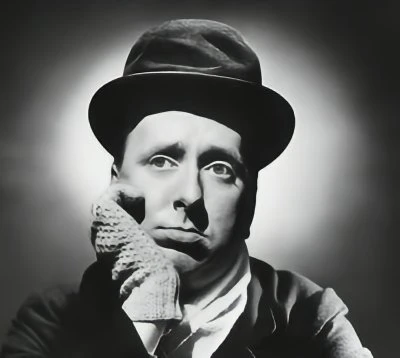
Encouraged by his experience of performing with a number of professional entertainers, Lloyd decided to turn professional himself, and once hostilities had ceased, he toured Britain in summer variety shows and pantomimes before finding a job as a "spot comic" at the Windmill Theatre. Lloyd’s deadpan humour was based on his great comic hero Stan Laurel. "I can't stand comedians who laugh at their own jokes," he stated. "Stan Laurel never did, and he never needed to offend anybody to get a laugh." But it didn’t always work out for him. "My early performances were disastrous," he remembered. "I deliberately didn't laugh at my own jokes, but neither did the audience."
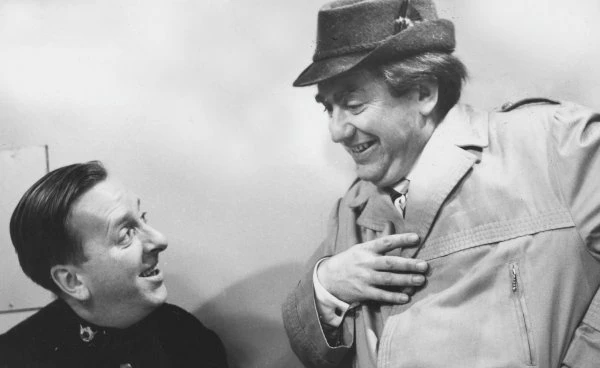
Lloyd made his television debut in 1950 in The Centre Show, in which performers identified as the ‘Stars of Tomorrow’ performed before a Services audience at the Nuffield Centre in London. Unfortunately, his appearance was not credited in the Radio Times. Later, he entertained the troops again on a tour of Cyprus, Malta and Tripoli with the comedian Tony Hancock. In 1957, he made the first of 22 appearances on Hancock’s Half Hour during which time he played a number of memorable straight feed-roles. The librarian trying to help Hancock find the missing last page from a detective novel, the lift operator when the lift gets stuck, and the fellow blood donor who steals Hancock’s wine gums are just some of the characters that viewers remember. But the paranoid Hancock had a habit of disposing of anyone he thought might be getting too popular on his show and in 1960 Lloyd was unceremoniously dumped like others such as Sid James and Kenneth Williams.
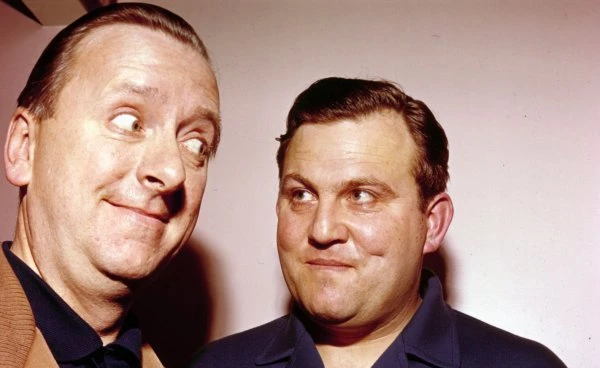
Lloyd continued to work variety theatres and performed in seaside towns where he was eventually teamed up by the husband-and-wife team Ronnie Brandon and Dickie Pounds with fellow comedian Terry Scott. He and Scott did four consecutive seasons together, including one in which they played two lodgers - the formula that was eventually to evolve into Hugh and I on television. In the meantime, Lloyd would turn up regularly on television in shows such as Here’s Harry (with Harry Worth), Sykes and A…, and Citizen James (with Sid James).
Meek, timid characters were Lloyd’s stock-in-trade, and in the long-running Hugh and I written by John Chapman, Terry Scott starred as the overbearing work-shy bachelor who aspired to wealth in a number of 'get-rich-quick' schemes, while Lloyd was the rather dim-witted, hapless lodger who worked at a local aircraft factory and who was easily led from one misadventure to another by his boisterous partner. The series proved to be a great success and only came to an end after five years when the stars decided to call time on it in 1967. But the BBC were eager to keep Lloyd and Scott together and eventually talked them into returning as the same characters but in a different setting. Consequently, Hugh And I Spy, which found the pair unwillingly involved in espionage and double-dealing, ran for one series.
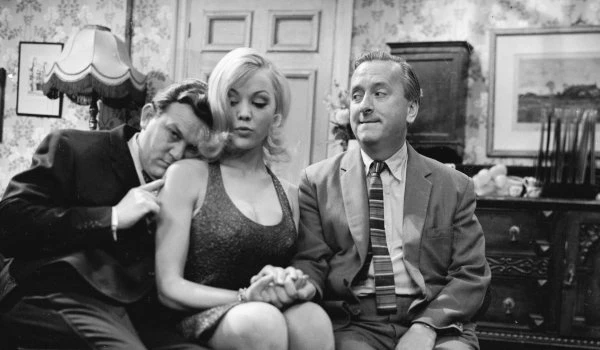
Between the two series, Lloyd made a Comedy Playhouse episode which was possibly intended as a pilot for a series. Simply titled Hughie, Lloyd plays an institutionalised resident at Her Majesty’s Pleasure who, upon release, discovers that he desperately wants to go back inside. The pilot was written by Johnnie Mortimer and Brian Cooke who would later create the hit sitcoms Father, Dear Father, Man About the House, George and Mildred and Robin’s Nest. Unfortunately, Hughie came and went as a single and forgettable episode.
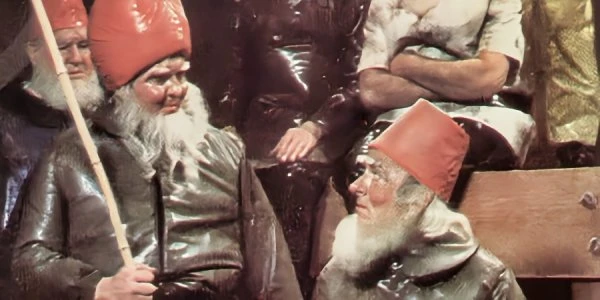
In 1969, Scott and Lloyd had a complete makeover for the surreal comedy The Gnomes of Dulwich. The series revealed the secret lives of garden gnomes residing in the garden of 25 Telegraph Road, Dulwich, and was written by Jimmy Perry as a supposedly satirical look at the controversies surrounding a number of issues at the time including Britain's entry into the Common Market. Whether the series would stand up today is hard to judge. Only one series of The Gnomes of Dulwich was made and unfortunately the tapes for this series do not seem to have survived the BBC's famous 'house-cleaning' of the late 1970s. It was to be the last series that Scott and Lloyd were to appear in together.
In the late 1950s Lloyd had married Mavis Polley. They were divorced in the late 1960s. He married Carole Wilkinson in 1969, but they too split up. He also split with Scott during this period and concentrated on perfecting his underdog character. By the 1970s, Lloyd was firmly established as a comic actor. He made his West End debut in 1970 in When We are Married at the Strand Theatre, opposite Peggy Mount and Fred Emney. The chemistry between Lloyd and Mount was enough for Jimmy Perry to create a sitcom, Lollipop Loves Mr Mole which ran for two seasons (the second just titled Lollipop).
Also on stage, he continued to enjoy leading roles in regional tours of Big Bad Mouse and Boeing, Boeing, before returning on the West End stage for a two-year run in No Sex Please, We’re British. Pantomime remained a firm favourite for him although he had an accident at Wimbledon during the run of Dick Whittington. He came onto the stage and promptly fell headlong into the orchestra pit, cutting his head open on one of the cymbals. He later recalled that it had got him "one of the biggest laughs of my career". He was rushed to hospital and stitched up and was still able to be back in the theatre before the final curtain came down.
After Lollipop, Lloyd came up with his own idea for a sitcom, Lord Tramp (1977), scripted by Michael Pertwee and featuring Lloyd himself as a happy-go-lucky tramp, Hughie Wagstaffe, who suddenly discovers that he has inherited a title, a fortune and a 50-room country estate - but decides that he may well prefer his previous lifestyle. The series also starred Joan Simms and Jack Watling.
Moving away from comedy, Lloyd began to receive positive notices for his straight acting. He played a dying filing clerk in Alan Bennett's Play of the Week, A Visit from Miss Protheroe, and in the same writer's Say Something Happened, alongside Thora Hird. In the early 1980s he spent a year at the National Theatre in Sheridan's The Critic, Webster's The Duchess of Malfi, and Chekhov's The Cherry Orchard. He also toured with the NT to Chicago in 1986. In the early 1990s he appeared at the National Theatre of Wales and spent two seasons at the Chichester Festival Theatre in Hobson's Choice.
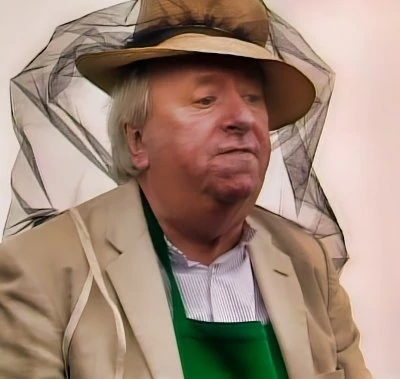
In 1983, he starred in all 13 episodes of Jury, a drama in which twelve members of the public are picked as jurors in a rape trial. Each juror's personal life is given an episode as the court case plays out each week. He also joined Warren Mitchell as a neighbour of Alf Garnett in In Sickness and in Health. Other television appearances included Last of the Summer Wine, Victoria Wood: As Seen on TV, Doctor Who, You Rang, M’Lord, Heartbeat, Foyles War, Doc Martin and My Family, all of which took him into the new millennium.
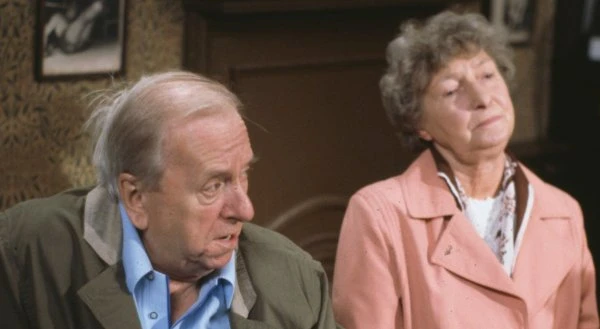
Lloyd’s film appearances were few and far between. He made a brief appearance in The Rebel in 1961 and in The Punch and Judy Man in 1962 (both Tony Hancock films) and turned up in a number of other low budget British comedy films in the 1960s which included She'll Have to Go with Bob Monkhouse, Alfred Marks and Hattie Jacques, On the Fiddle with Alfred Lynch, Sean Connery and Victor Maddern, and The Mouse on the Moon starring Margaret Rutherford and Ron Moody. In 1994, he was persuaded by Anthony Hopkins to play in the first film he directed, August, based on Chekhov's Uncle Vanya. Lloyd also appeared in the stage version at Theatr Clwyd.
In 1983, at the age of 60, Lloyd was married for the fourth time to 30-year-old Shän Davies, a reporter on the Sunday People, who was thirty years his junior. In his autobiography, Thank God for a Funny Face, he described his future wife as "a scatty, blondehaired Fleet Street tabloid journalist". The couple moved to Worthing in 2003. She conducted staged interviews with him in the later stages of his career when he entertained on sea cruises. In the 2005 Honours List Hugh Lloyd was awarded an MBE for his services to drama and charity. He passed away at home on 14 July 2008, aged 85 years. Shän Lloyd died in December 2008, just five months after her husband. For the last few months of her life, she drank heavily, saying she had nothing left to live for.
Lloyd always preferred working in television, a medium which suited his technique of underplaying his characters. "I never liked the theatre that much," he remembered. "Terry Scott was always much better at it than me; he liked to dominate the stage, I wanted to stand still." He loved portraying the “little man” character. He said that the audience appreciated him because he always triumphed over a more powerful opponent in the end, and that was what made it meaningful.
Hugh Lloyd’s legacy is that of a beloved and versatile actor who entertained generations of audiences with his roles as the “little man” and the underdog. A latter-day unsung hero, he is remembered for his humour, warmth, and professionalism. He worked with some of the most renowned actors of his time, and he charmed Britain for over half a century.
Published on February 15th, 2024. Written by Laurence Marcus for Television Heaven.


